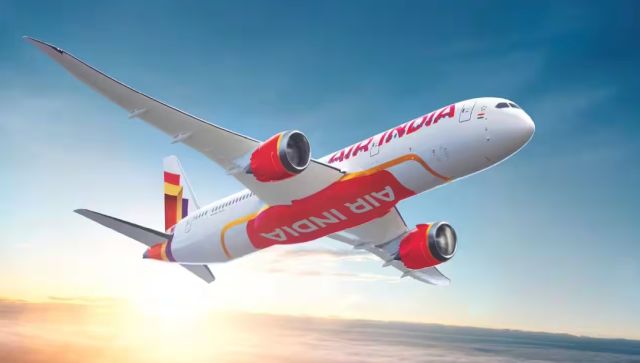New heights in aviation. Image courtesy Air India
The aviation industry is undergoing a significant change, using digital advancements to transform how airlines work and professionals carry out their roles. The International Air Transport Association (IATA) labels this change as a “digital transformation”, where traditional methods are rebuilt using digital tools to improve overall value. One notable trend in this transformation is the increased use of data analytics.
Digital technology is assuming a central role, guiding operations from online ticket bookings to intricate flight metrics and passenger preferences. Propelled by the rapid emergence of artificial intelligence (AI) and machine learning, data analytics is optimizing routes, curbing fuel consumption, and elevating the passenger experience. The responsibility now rests on aviation professionals to embrace digital literacy, adeptly decode data, and acclimate to the changing technological landscape.
The workforce must adapt by acquiring digital literacy, understanding basic programming concepts, and familiarizing themselves with relevant software tools. In an era dominated by data, proficiency in data analysis tools has become non-negotiable. Success in the current digital aviation landscape hinges on the ability to navigate and extract meaningful insights from the vast pool of available data.
Related Articles

Union Budget: Farming math and impact on agriculture sector

Union Budget: Why MSMEs seek de-risking of credit inflows
Automation, a driving force behind this digital transformation, is permeating every facet of aviation, from check-in kiosks to cockpit autopilot systems. The integration of automation is not merely streamlining processes but is also enhancing efficiency, safety, and the overall passenger experience. Automation facilitates intelligent asset utilization, streamlined processes, and a comprehensive understanding of business dynamics.
For example, Air India has pioneered the use of a generative AI virtual agent named ‘Maharaja’. This AI-powered agent is capable of responding to 6,000 inquiries in four languages, achieving an 80% success rate in providing prompt answers. Trained across 1,300 topics, the agent efficiently addresses customer queries and appropriately redirects inquiries requiring further assistance to human agents. Despite the increasing prominence of automation, aviation professionals now find themselves in roles that emphasize collaboration with technology rather than dependence on it.
Flight crews, for instance, are witnessing a shift with reduced manual control over aircraft and an increased focus on monitoring systems, making strategic decisions, and ensuring passenger safety and comfort. While automation handles routine tasks, aviation professionals must adeptly collaborate with these technologies, understanding when manual intervention is imperative. This paradigm shift demands a continuous adaptation to new responsibilities and proficiency in utilizing automation tools effectively.
Airports, crucial nodes in the aviation network, are prioritizing business intelligence solutions. The Airports Council International (ACI) reports that 93 per cent or more of airports plan to invest in business intelligence initiatives for asset management and flight operations by 2025. The journey of digital transformation may automate processes, but aviation professionals remain indispensable in monitoring technology performance and intervening when necessary.
Digital transformation demands a new skill set compared to legacy systems. Automation may replace some repetitive jobs, but positions requiring immediate decision-making grounded in human logic, experience, and common sense will persist. The digital age necessitates a workforce equipped with new skill sets aligned with technological advancements.
Deloitte’s 2023 Airline Tech Trends underscore the need for airlines to focus on technology knowledge and skills as distinctively competitive differentiators. As the aviation workforce undergoes transformation, ensuring professionals are well-trained becomes paramount for the pursuit of aviation safety. Staying abreast of technology developments is not merely beneficial but essential for aviation professionals in the digital age. Those who embrace and adapt to this digital evolution will not only excel in their careers but will also play a pivotal role in propelling the industry toward unprecedented growth. The skies of aviation’s future are digital, and those who navigate this realm with agility will soar to new heights.
The author is Director Global Corporate Key Account Management -Saudia Cargo. Views expressed in the above piece are personal and solely that of the author. They do not necessarily reflect Firstpost’s views.
Read all the Latest News, Trending News, Cricket News, Bollywood News,
India News and Entertainment News here. Follow us on Facebook, Twitter and Instagram.






)
